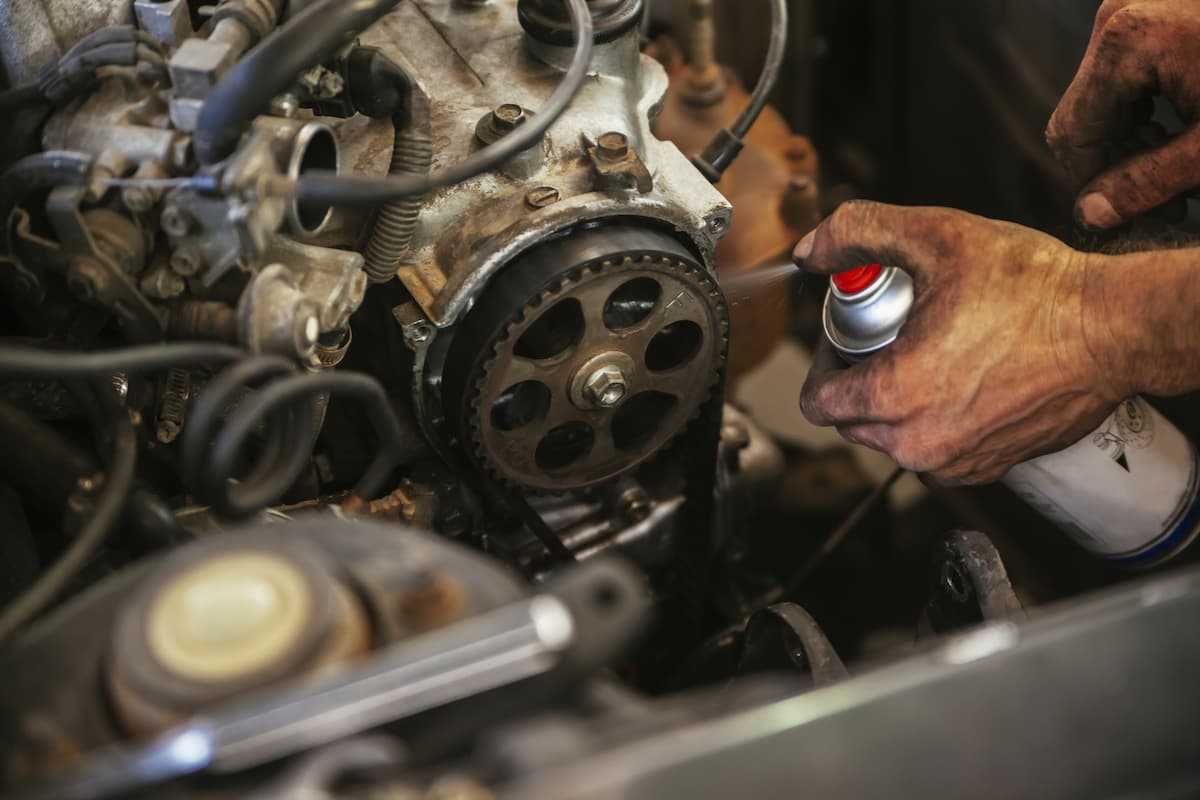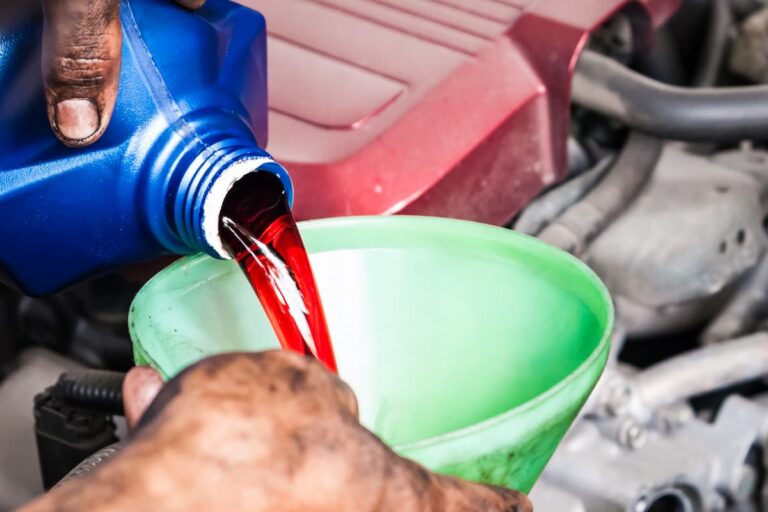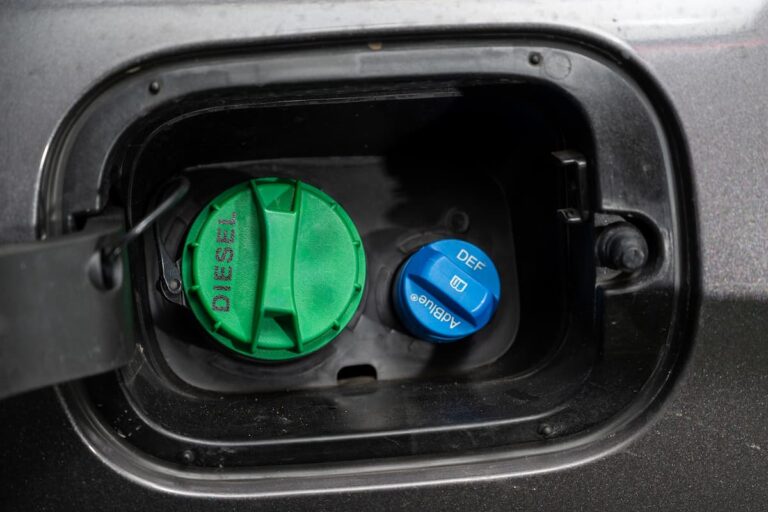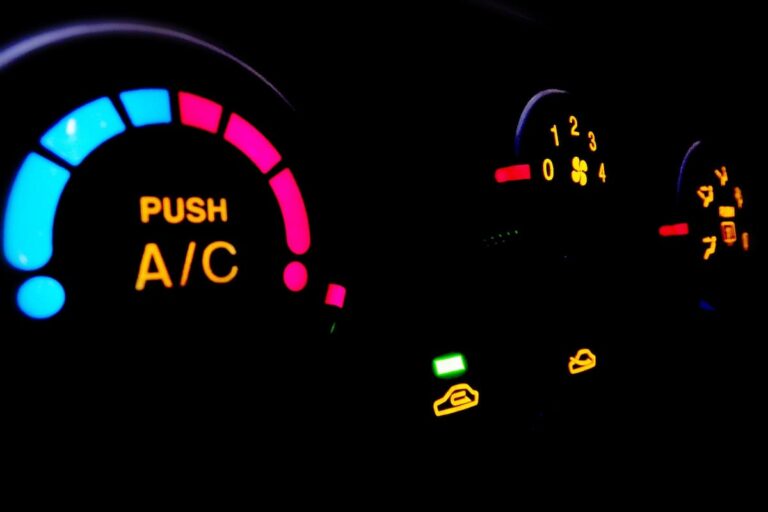Can You Use Brake Cleaner As Starter Fluid?
Engines can have difficulty starting after sitting unused or in extremely cold temperatures.
A spritz of starter fluid is usually enough to get it going, but what if you don’t have any on hand? Can you use brake cleaner to start an engine instead of starter fluid?
You can use brake cleaner as starter fluid for gas engines if you’re in a pinch and need to get your vehicle running. Aerosol sprays are best because they spray easily, and you shouldn’t have any problems when using them sparingly.
Using Brake Cleaner To Start a Gas Engine

Generally, brake cleaners will work to get a gas engine started.
Starter fluid is better, but if you have none on hand, an aerosol can of brake cleaner gets the job done.
In reality, any kind of flammable material can be used to start a gas engine, including WD-40 and carburetor cleaners.
Occasionally using brake cleaner to get your engine started shouldn’t damage it, but there are a few considerations to understand before doing so.
Ensure you are only using brake cleaner to start an engine outdoors.
The engine exhaust will be more toxic than usual after burning brake cleaner, and you don’t want to inhale those fumes.
It also has the potential to dissolve the oil and grease inside the combustion chamber.
If the combustion chamber has the oil cleaned out, it can cause your engine to dry start, which can do extensive damage to your engine and its parts.
Only use brake cleaner as a starter fluid if you have to.
Better Alternatives to Brake Cleaner
Even if you have brake cleaner on hand, you probably have other, much better options that will get your car started.
WD-40 is great and can be sprayed directly into the intake or carburetor. It’s highly flammable and one of the best alternatives to starter fluid in cold weather.
It also won’t dissolve the grease inside the engine.
For small engines, you can use gasoline in a squirt bottle to help get it started. Simply aim at the carburetor intake and give it a few squirts.
You can also try hairspray if you’re stranded without starter fluid or one of the other options. Hairspray ignites incredibly easily and can be sprayed into the carburetor just as easily as any of the choices.
Regardless of your starter aid, always be aware of how much you spray into your engine.
Only use as much as necessary to get the engine started – that way, you avoid stripping the oil and grease, creating toxic fumes, or overheating engine parts.
Is Starter Fluid Bad For Motors?
Whether starter fluid is bad for your engine depends on how often you use it and when you’re using it.
Starter fluid shouldn’t be used to start a car often. In certain circumstances, starter fluid can be very beneficial, while it can be harmful in others.
Starting your engine can be difficult if it’s cold outside because it’s freezing enough for gasoline to have a hard time vaporizing. Starter fluid helps warm the gas, making it easier to start the engine.
Starter fluid can also be useful if your car has been in storage for a long time. With a dead battery or old fuel sitting in the lines, your engine might need a lot of starter fluid to get going again.
In both of those cases, starter fluid is not just useful but also the best choice.
Unfortunately, starter fluid doesn’t work well in all engines and can cause issues when used often.
Two-stroke and diesel engines face different problems when starter fluid is introduced.
Two-stroke engines include engine oil in the gasoline that enters the combustion chamber. Starter fluid can dissolve oil, meaning that if enough starter fluid is introduced, it can keep the oil from lubricating the engine.
In this case, you’ll likely score the pistons and bearings, eventually leading to engine failure.
Diesel engines face a more dangerous problem. They use a higher compression rate that can cause the ether in the starter fluid to ignite before the motor is running and ready to use the combustion.
If this pre-combustion happens, it can detonate and severely damage your engine.
Engines are not designed to use starter fluid each time they start; it can break down the oil that lubricates engines of any kind.
Over-using starter fluid can lead to dry starts, scored pistons, or engine failure. If you often need starter fluid (or an alternative) to get your engine started, it’s indicative of a larger problem.
You may have a clogged carburetor that needs to be cleaned out. Poor quality gasoline can cause engine sputtering and stalling as well.
If you use a lot of starter fluid or your engine won’t start when it’s used, you need diagnostic help to determine the issue.
Overall, starter fluid can help a stubborn engine start, and it’s okay to use a little now and again. Just be aware that it can harm some engines and shouldn’t be your go-to strategy for starting your engine.
Conclusion
Brake fluid can be used as a starter fluid substitute, but it shouldn’t be your first choice. Other options are safer for you and your vehicle, but it is worth using in an emergency.
In general, you shouldn’t need starter fluid to get your engine going.
Prolonged use of a starter aid can damage your engine or signal that your vehicle has larger problems that need to be addressed.






